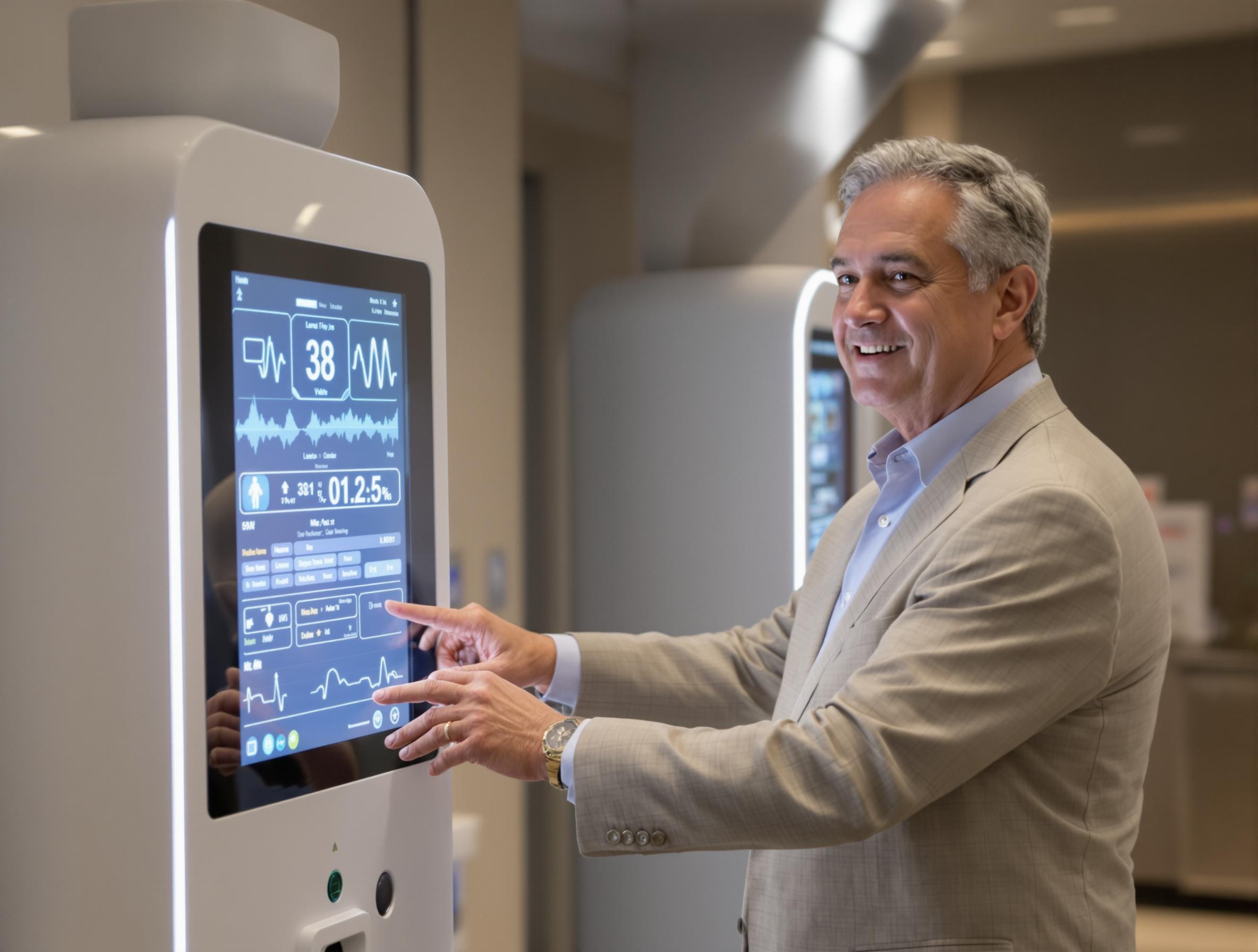Can Anxiety Cause High Blood Pressure?

Key Takeaways
- Anxiety can significantly influence blood pressure by triggering the body’s ‘fight or flight’ stress response, leading to temporary spikes and potential long-term cardiovascular impacts.
- Chronic anxiety and psychological stress are linked to sustained hypertension, emphasizing the importance of managing both emotional and physical health through lifestyle adjustments and therapy.
- Effective natural strategies, such as mindful breathing, heart-healthy eating, and regular gentle physical activity, can lower blood pressure and manage anxiety, supporting overall well-being.
We all feel anxious occasionally—before a big presentation, during a stressful life event, or in response to the unknown. But have you ever wondered what that anxiety is doing to your body, specifically your heart and blood pressure?
Anxiety and high blood pressure are closely linked in ways that may surprise you. While occasional anxiety can cause short-term spikes in blood pressure, chronic anxiety may contribute to long-term cardiovascular issues if left unmanaged.
At Mobile Care Health, we understand that true wellness requires balancing mental and physical health. That’s why we’re committed to helping you recognize the early signs, understand the connection, and take steps to support both your emotional well-being and heart health.
The Physiological Impact of Anxiety on Blood Pressure
Your body has an amazing built-in alarm system that responds when you feel anxious. This natural response, often called “fight or flight,” begins a chain reaction in your body, like pressing an emergency button that sets everything on high alert. When you experience anxiety, your brain signals the release of two main stress hormones: adrenaline and cortisol.
How does anxiety affect blood pressure in the moment? Picture your circulatory system like a network of garden hoses.
When anxiety triggers your stress response, adrenaline acts like a hand squeezing these hoses, making your heart pump faster and your blood vessels narrow. This combination naturally drives your blood pressure higher – a normal reading of 120/80 can temporarily jump to 140/90 or even higher during anxious moments.
Research shows that people living with anxiety have an 18% higher chance of developing ongoing blood pressure issues. While everyone responds differently to stress, frequent anxiety episodes can affect your cardiovascular system over time.
The Link Between Chronic Anxiety and Hypertension
Does your heart race when you’re feeling overwhelmed? You’re not alone. Many worry about how their emotional well-being might affect their physical health, particularly their blood pressure.
This connection between mind and body is real – about 40% of Americans experience anxiety at some point in their lives, and many notice changes in their blood pressure during stressful periods, according to the Anxiety & Depression Association of America.
When ongoing stress and worry become constant companions, they can influence your cardiovascular system in lasting ways. Picture your body’s stress response like an overprotective friend – always on alert, keeping your muscles tense and your heart working overtime.
Over time, these persistent stress reactions can turn occasional blood pressure elevations into a more lasting concern.
Taking care of your emotional and physical health starts with understanding your body’s signals. Regular blood pressure checks can help you spot patterns early, while they’re easier to address.
Simple daily practices make a real difference: finding moments of calm through breathing exercises, establishing restful sleep patterns, or making minor changes to your meals. Working with healthcare professionals who understand both the physical and emotional aspects of your well-being can help create a personal path to better health that fits your lifestyle and needs.
Effective Natural Strategies to Manage Anxiety and Blood Pressure
Looking for natural ways to lower blood pressure due to anxiety? Simple lifestyle adjustments can help regulate blood pressure naturally while supporting emotional well-being. Here are proven approaches that work together to promote both mental and cardiovascular health:
Relaxation Techniques
- Mindful breathing exercises – Take 5-15 minutes daily for deep breathing. Place one hand on your chest and one on your stomach, inhale slowly through your nose, and release through your mouth. This simple practice activates your body’s natural calming response according to Harvard Health
- Progressive muscle relaxation – Find a quiet spot, lie down comfortably, and spend 10-20 minutes systematically tensing and releasing each muscle group, starting from your toes up to your head. This method releases physical tension while settling your mind
Nourishing Food Choices
- Heart-healthy eating pattern – Focus on blood pressure-friendly foods like leafy greens, berries, bananas, beets, fatty fish, and whole grains. This approach can lower blood pressure. Limit salt intake and processed foods while increasing potassium-rich options
Movement and Activity
- Gentle physical activities – Choose enjoyable movement like morning walks, swimming, or yoga. Aim for 30-45 minutes of moderate activity daily. Regular exercise combined with a balanced diet can lower your blood pressure by several points for each few pounds lost.
- Create a relaxation space – Set aside a peaceful corner at home for meditation or quiet reflection. Spending 10-15 minutes in your calm space can stabilize stress levels and regulate blood pressure.
Frequently Asked Questions About Anxiety and Blood Pressure
If you’re concerned about how anxiety affects your blood pressure, you’re not alone. Many of our patients share similar questions, and we’re here to provide clear, personalized answers to help you feel more confident about your health.
What happens to my body when I feel anxious?
When anxiety strikes, your body responds quickly with physical changes that can raise your blood pressure readings. Your heart might beat faster and feel tense – these are normal responses to stress that usually pass once you feel calmer.
What signs should I watch for in my body?
Listen to your body’s signals, such as a racing heart, sweaty palms, or feeling jittery, especially if these sensations occur often. Pay attention to physical tension in your chest or shoulders, as these might be signs that stress affects your health in ways that deserve attention from your care provider.
Can I manage these feelings naturally?
Absolutely. Many people find success with natural approaches to keeping their mind and body balanced. Simple practices like regular walks, calming breathing exercises, and good sleep habits can make a remarkable difference in your feelings.
How is stress-related pressure different from other types?
Think of stress-related pressure changes like waves – they accompany your emotional state. This differs from ongoing pressure concerns, which stay elevated regardless of your feelings.
What can I do right now if I’m feeling anxious?
Take a peaceful moment for yourself. Find a quiet space, close your eyes, and focus on slow, deep breaths. Gently relax your muscles, starting from your toes and moving up to your shoulders. These simple techniques can help restore your sense of calm and bring your readings back to their normal range.
Calming the Mind, Protecting the Heart
Anxiety may be a natural human response, but when it lingers, it can place extra strain on your cardiovascular system, sometimes nudging your blood pressure higher than you’d like. The good news is that both anxiety and hypertension are highly manageable. By practicing stress-reduction techniques, staying active, and keeping an eye on your numbers, we can create a positive feedback loop that benefits mind and body.
At Mobile Care Health, we believe whole-person wellness starts with understanding the intricate dance between emotional and physical health. Our team combines evidence-based mental health strategies with personalized heart-health guidance, so you never have to navigate that journey alone.
Ready to bring your blood pressure and peace of mind into healthier ranges?
Book a virtual consultation with Mobile Care Health today, and let’s build a plan that keeps your heart steady and your mind at ease.
Articles on this site are for general education and do not substitute for professional medical advice. Consult our providers for personalized recommendations





